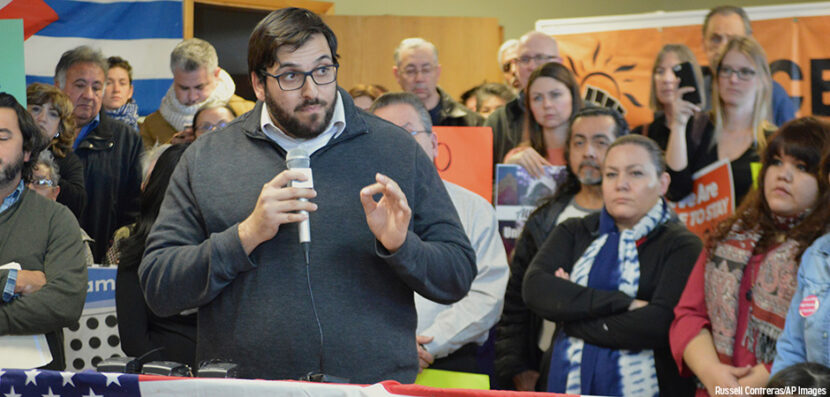
Trump’s Immigration Ban Controversy
Last Friday, President Trump issued an executive order on immigration that would ban Syrian refugees from entering the United States indefinitely, ban all refugees for 120 days, and block citizens of seven Muslim-majority countries (Iran, Iraq, Libya, Somalia, Sudan, Syria, and Yemen) for 90 days. American diplomats were also told to immediately stop visa interviews for citizens of the seven countries, and to stop processing or printing any pending visas. Naturalized citizens from these countries will not be affected by the ban.
When the ban went into effect on Friday, an estimated 100 to 200 people attempting to enter the U.S. from the seven countries (and refugees from all countries) were stopped and detained at airports in the U.S. and abroad. Roughly 80 were held for hours and released, while others were sent back overseas to their home countries. Even students and legal permanent U.S. residents with green cards from the affected countries were denied entry. Airline crew members from the seven countries were also prevented from entering the United States.
Related Link: Click this link to read the text of the Executive Order
The Reaction
Over the weekend, federal judges in four states (New York, Massachusetts, Virginia, and Washington) issued rulings to block Trump’s immigration order and to prevent detainees from being sent back to their home countries, at least for the time being. The Massachusetts judge also said that travelers could not be detained in airports.
Despite the judges’ orders, the Department of Homeland Security and other law enforcement officials continued to enforce the president’s order. When acting U.S. Attorney General Sally Yates questioned the legality of the ban, Trump fired Yates and replaced her with Dana Boente, who supports the ban and directed the DHS to continue enforcing the order.
Meanwhile, thousands of people protested the ban in dozens of cities around the country, mostly at airports. Protestors also staged a large demonstration outside the White House over the weekend.
Is It Constitutional?
The American Civil Liberties Union (ACLU) and the Council on American-Islamic Relations (CAIR) already have filed legal cases against the ban. These organizations argue that by singling out Muslims, Trump is in violation of the First Amendment, which states that Congress cannot create a single state religion. They also say that the ban violates the Fifth and Fourteenth Amendments guaranteeing due process of the law, because even those individuals with valid visas are being denied entry, even if there is no evidence of them having broken any law.
Those in support of the ban, on the other hand, argue that these rights apply only to U.S. citizens. No one from a foreign country has the right to demand entry into the U.S, and the government can deny entry to anyone for any reason it sees fit.
In Friday’s executive order, Trump quoted a 1952 immigration law that allows the president to deny entry to anyone whom he/she believes would be a threat to U.S. interests. However, a 1965 revision of the law states that no one can be denied entry on the basis of “race, sex, nationality, place of birth, or place of residence.”
It is also possible that the ban violates international law. According to the provisions of the Geneva Convention, countries must accept war refugees on humanitarian grounds, regardless of where they come from.


